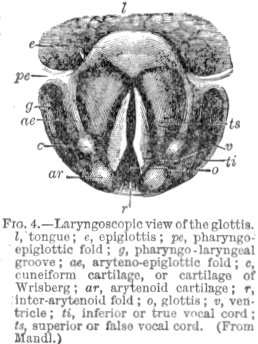Glottochronology
Today, a new word for you: glottochronology. The University of Houston's College of Engineering presents this series about the machines that make our civilization run, and the people whose ingenuity created them.
Cultural change is an odd thing. It always turns off in unexpected ways. Who in the 1930s would've thought that the continuing evolution of the automobile would veer away from increasing speed and toward issues of safety, comfort and reliability?
Try something much closer to the bone than even our cars. Try language. Languages steadily mutate, and where they go is as unpredictable as the automobile. The rate of mutation is just slow enough to be unnoticed. But leave a group of articulate young students and go home to watch a movie from the 1930s on TV. Then you can hear the change. You recognize the words, but many are no longer used in the same way. And pronunciations have changed.
The common wisdom says languages lose about one word in five every thousand years. But it's more than just words. Take a line of English verse that sounded like this in 14th century England:
Who so attendeth to that song
And leaveth the first, then doth he wrong.
Here's how that might come out in modern English:
Whoever listens to that song,
And is first to leave, then he does wrong.
If I wrote the words, you would recognize all of them -- even the archaic ones. But I doubt you understood me when I spoke them.
A linguist named Swadesh looked at this process of change in the early '50s, and he invented the new term glottochronology -- literally, the timetable of tongues. He realized that the decay of any given language is like the decay of carbon 14. The replacement of words during, say, a century is proportional to the number of original words that'd survived up to that century. This doesn't include questions of pronunciation. We still count the German word kuh and the English word cow as the same word.
Look what became of Julius Caesar's Latin. During two millennia it evolved into languages like Rumanian, Italian, French and Spanish. Portuguese is close to Spanish only because it's had less time to grow apart.
Anglo-Saxon English didn't change much right after the Battle of Hastings. The French kept speaking French in England while the English spoke their own tongue. A century or so later the French in England had become bilingual. It was then they began pulling in the occasional French words and English began evolving in earnest.
Glottochronology is the mathematical study of these changes. The Battle of Hastings was certainly a turning point. And a linguist might infer that event from today's languages without ever having read about it. That's what linguists are doing today with Native-American languages. By comparing languages, they're trying to determine the patterns and dates of Native- American migrations.
All that leaves me to wonder if we might not one day be able to infer the arrival of the internal combustion engine by comparing today's cars with airplanes. But that is speculation for another day.
I'm John Lienhard, at the University of Houston, where we're interested in the way inventive minds work.
(Theme music)
Wang, W. S. Y., Glottochronology, Lexicostatistics, and Other Numerical Methods. The Encyclopedia of Language and Linguistics, Vol. 3 (R. E. Asher, ed.). New York: Pergamon Press, 1994.
Hockett, C. F., A Course in Modern Linguistics. New York: The Macmillan Co., 1958. Chapter 61, Glottochronology, pp. 526-535.
I am grateful to linguist Jeff Fadell, UH Library, for his counsel.
Glottochronology is clearly an inexact science, subject to many variables. Glottochronologists base their analyses on a carefully selected universal vocabulary of only a hundred words that appear in any language. Words like radio and oxygen are obviously too specialized to be included. Prepositions and emotions are too variable. The list includes things like body parts, numbers, colors, animals, geographical features and universal verbs. I quote that list in its entirety below.
all ashes bark belly big bird bite black blood bone breast burn claw cloud cold come die dog drink dry ear earth eat egg eye fat feather fire fish fly foot full give good green hair hand head hear heart horn I kill knee know leaf lie liver long louse man many meat moon mountain mouth name neck new night nose not one person rain red road root round sand say see seed sit skin sleep small smoke stand star stone sun swim tail that this thou tongue tooth tree two walk warm water we what white who woman yellow
